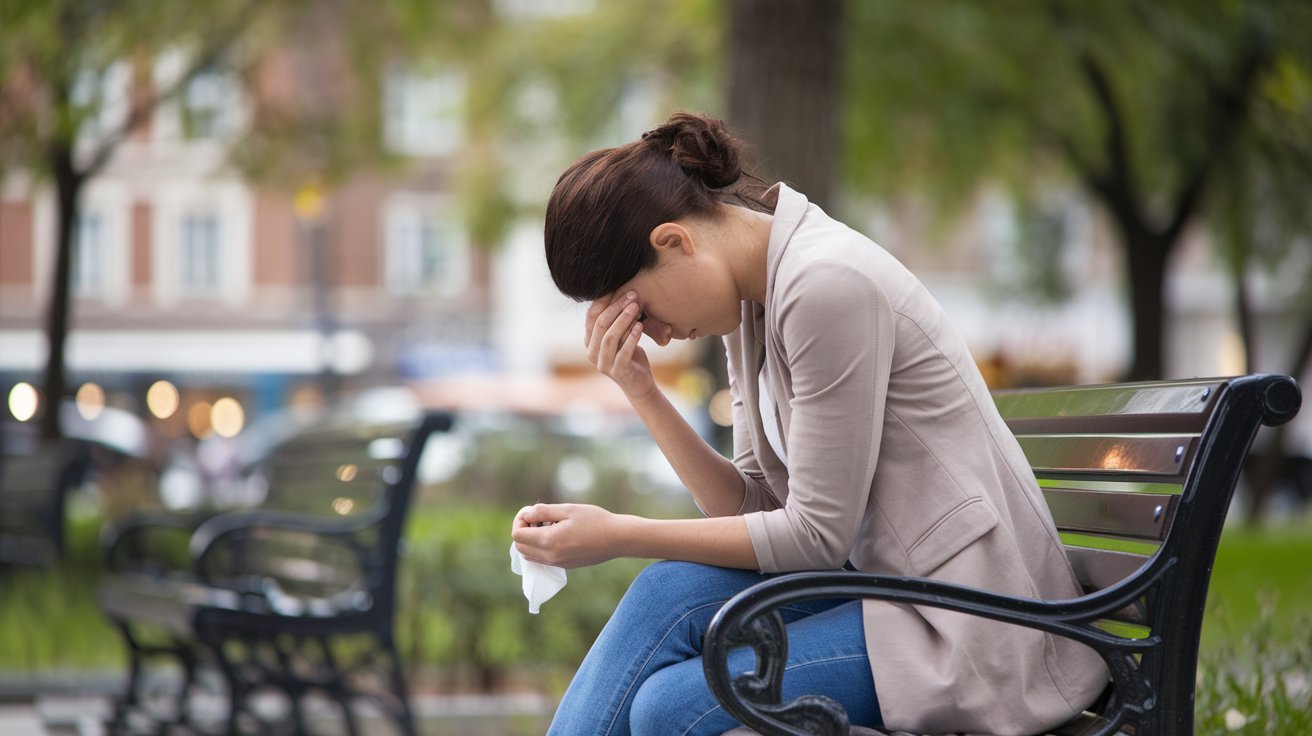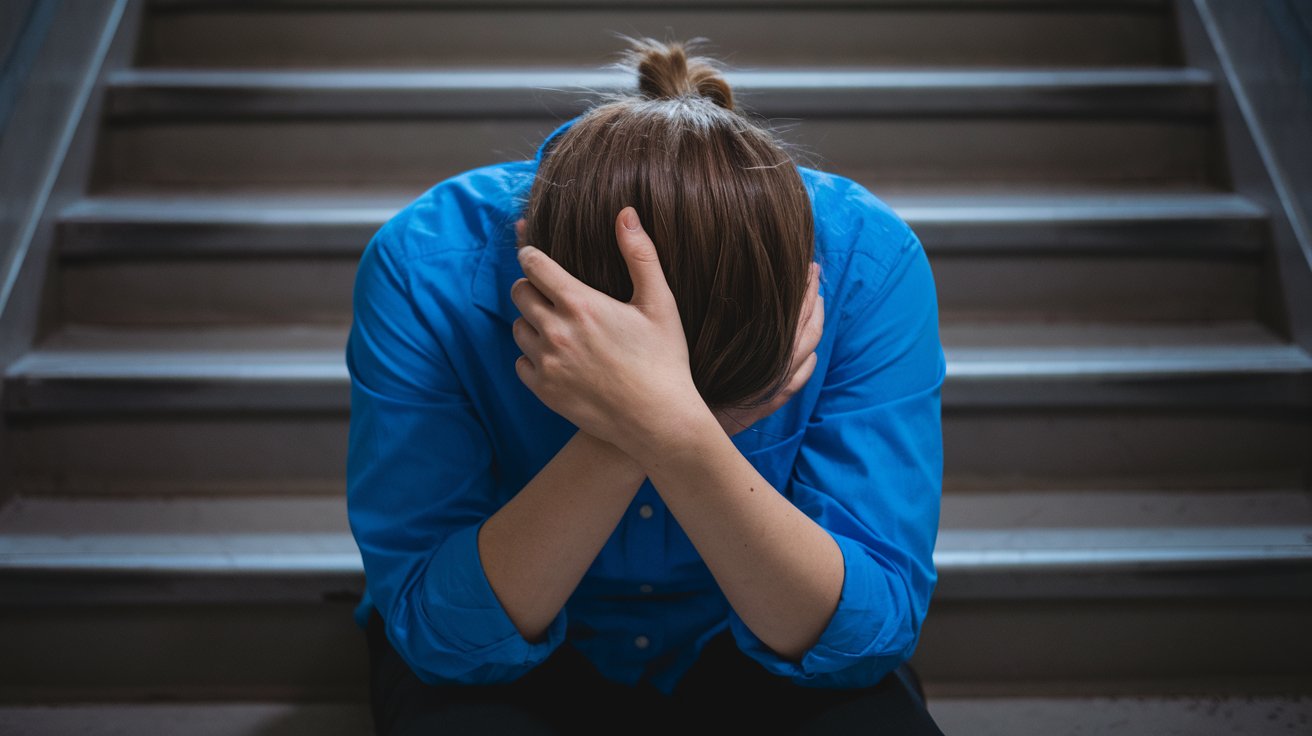Depression is multilayered and sometimes not-so-obvious mental disorder that may get really destructive and affect millions of people all over the world. Despite growing awareness and greater understanding of the illness, spotting symptoms of depression isn’t quite that easy. It is in this view that the present paper shall provide an appropriate house for ascertaining the signs of depression in 2024, combined with recent research, expert opinions, and personal experiences in order to make the concept clearer for you.
1. Emotional Symptoms
Sadness or Emptiness: Probably one of the most classic symptoms that people go through with depression is feelings of sadness, hopelessness, or emptiness nearly all the time. Most of the time, such a mood does not get any better, even when some good things in life come along, and may persist like this for weeks, months, and even longer.
Anhedonia would be the feeling that could arise as a part of symptomatology from the loss of interest or pleasure in activities considered enjoyable. These range from hobbies and social interactions to daily routines.
Feeling of Guilt or Worthlessness: Usually, feelings of guilt, worthlessness, or self-blaming are observed states of depression. These kinds of feelings may be inappropriate with regard to circumstance and may even culminate in a negative self-concept.
Irritability or Anger: At times, depression may not show up through feelings of sadness but might be manifested in mood forms such as irritability, frustration, or even bouts of unprovoked anger. This can further lead to conflicts with loved ones and further contribute to the feeling of loneliness.
2. Physical Symptoms
Changes in Sleeping Habits: Depression always alters the sleeping habit of an individual. Most of them might not sleep or sleep less while other might sleep more just to run away from the feeling of depression.
Fatigue or loss of energy: This is one of the more salient symptoms of Major Depression. This is not tiredness; this is a complete feeling of rundown and worn out, which makes even the slightest tasks seem too significant.
Changes in weight and appetite: The state of depression may also result in extreme alterations in appetite; this might be within the extreme circumstances of gaining tremendous weight or losing it altogether. While some will lose any interest in food, others may overfeed themselves as a way of soothing themselves.

Aches and pains: Depression is usually manifested by physical complaints in the form of unexplained headaches, backaches, or complaints of the abdominal region. These symptoms usually remain resistant to treatment on account of their association with the underlying depression.
3. Cognitive Symptoms Signs of Depression
Depression may make it hard for one to have his or her mind focused on anything because the mind may be deadened, hence, concentration, making decisions or remembering a task may be difficult. It might affect work, school and even daily routines .
Negative Cognitions: Other common symptoms amongst depressed people include negative thinking. This may be in the form of feelings of hopelessness about the future, excessive self blame and at times suicidal ideation.
Slowed thinking or movements: Psychomotor retardation is a symptom of depression that involves a slowing down of thought and of physical movement. Some individuals have referred to the symptom of psychomotor retardation as like living in slow motion.
Personal Accounts: Real Life Accounts of Symptoms of Depression It is good on paper but sometimes, personal stories teach better. A selection of anecdotes from people who have firsthand experience with depression is included in this section.
Sarah’s Story Marketing executive Sarah, 32, began to feel indifferent about things that normally brought her pleasure. “I used to love going out with friends and hiking on the weekend,” she says. “But suddenly, nothing seemed enjoyable anymore. I’d cancel plans last minute, and I’d stay in bed all day. I didn’t realize it was depression until my mom pointed out how withdrawn I’d become.”.
John’s Story: Depression wore a face of irritability and anger for John, 45, father of two.
“I was snapping at my kids for the tiniest things,” he recalls.
How to Recognize Depression in Others
It is not always easy to identify depression in others, as people suffering most of the time keep their problem in cover out of stigma or fear of burdening others. Following are some of the signs that may indicate a close friend or family member might have a problem with depression:
Social Withdrawal: If a friend or loved one suddenly stops participating in social activities, or misses out on events he or she used to enjoy, that may be a warning sign he or she is depressed.
Behavior Changes: Watch for sudden changes in behavior, increased irritability, frequent tearfulness, or decided lack of energy.
Ignoring Responsibilities: A depressed person will generally not be able to carry on with his daily responsibilities. If someone is keeping himself away from going to work, school, or other important events, that might raise a red flag.

Talking Hopelessly: Where the person talks much about being hopeless, worthless, and/or overwhelmed by life, then these feelings are important to be taken seriously, and such a person needs to be encouraged toward seeking help.
Getting Help: Early Intervention
If you, or someone you know, seems like they might be suffering from the symptoms of depression, then get help. The earlier the intervention, the less likely the symptoms will worsen and the more hopeful the possibility of full recovery. Following are some ideas you may consider trying:
1. Someone to Talk To
Maybe even better first might be seeking help by opening up to a close friend, family member, or even just a therapist. Sharing may be a relief and maybe offer another perspective on your situation.
2. Consult a Mental Health Professional
Testing will put a psychologist, psychiatrist, or counselor in a position to diagnose this. They then will be in a position to come up with a treatment plan that works for you. Also, the treatment can be therapy alone, medication alone, or both.
3. Practice Self-Care
Ways of dealing with depression include practicing self-care. These include keeping a healthy lifestyle through regular exercises, eating healthily, sleeping well, and engagement in things that make one have fun and feel relaxed.
4. Stay Connected
Isolation feeds into depression, and a person must be in touch with family and friends-even when one really does not feel like it. Social support is very important to recovery. Signs of Depression
Future of Depression Treatment
New therapies and technologies are re-etching the landscape for treating depression with growing effectiveness, and it’s increasingly personal. Some bright recent developments in this direction include: Signs of Depression
Digital Mental Health Tools: These include several applications and online platforms through which therapy, meditation, and monitoring of mental health are possible. These will more easily be able to provide support for persons with accessible help in real time and manage their symptoms.
Precision Medicine: Genetics and neuroscience studies have made it possible to tailor the treatment according to a person’s biology. On the positive side, this would mean better treatment outcomes with fewer side effects. Signs of Depression
Innovative Therapies: The new novel types of treatments are TMS and psychedelic-assisted therapy, to name a few. Both these kinds of therapy are extremely promising for TRD patients.
Conclusion: Diagnosis and Management of Depression in 2024
Depression can be serious, debilitating, but it is indeed treatable. It is, therefore, vitally important to know its symptoms and head against the disorder on time for an improved quality of life and good health. Whatever the situation may be, whether for oneself or someone else, remember that help is available and recovery is possible.

May 2024 continue to break down the stigmas regarding poor mental health, so we may talk more easily about what really ails us and help each other further down that long path toward well-being. If you or someone you know is fighting depression, don’t ever be afraid to reach out for help because you’re never alone.







